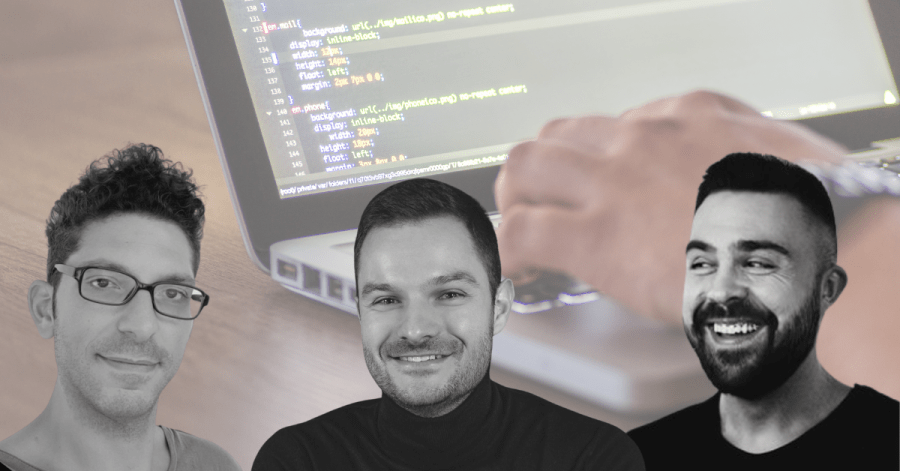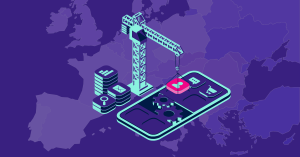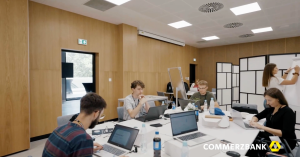As the new internet economy of Web 3.0 is built code by code, we see big tech adapting their business models, new use cases of the blockchain technology spreading throughout industries, and novel blockchain-based businesses popping up everywhere.
As the Web 3.0 space expands, so does the need for tech talent that can work and thrive in this decentralized, transparent, and autonomous environment, creating digital products and services.
In order for the Web 3.0 idea to become reality, driven and curious Web 3.0 developers will have to act on it, including by creating the “dApps” – decentralized apps.
We gathered insights from experts in the field on what are the essential skills a Web 3.0 developer needs to dive deep into these new career opportunities.
If you want to learn Web 3.0 and be a part of the code of this new universe, read on.
How to learn Web 3.0: Technical skills
#1 Learn the fundamentals of blockchain and smart contracts
When it comes to developing Web 3.0 applications, knowledge of blockchain and smart contracts is essential. Experts point out that this is a different programming paradigm than the usual procedural setup most developers are used to.
“In a nutshell, what makes Web 3.0 so different from Web 2.0 is the absence of a centralized server. This changes everything in backend development. Programmers need to understand how blockchain technologies work and learn smart contract languages like Solidity for example. Regarding frontend development, HTML, CSS, and JavaScript will remain similar to the Web 2.0 era”, explains Alexandros Ananiadis, Metaverse Generalist and co-founder of Placeme, a company helping businesses and creative agencies with 3D design and AR development of custom mobile apps, as well as web and social media filters and effects.
Solidity is a Web 3.0 language, native to the Ethereum blockchain and could be used in others as well, and you will need it to write smart contracts. It is similar to C and JavaScript.
As you now have the tools, it’s time to write and develop smart contracts. They are pieces of code, living in the blockchain, that cannot be altered or mutated. They are needed to secure the automation of the workflow.
As regards frontend development, HTML, CSS, and JavaScript will remain similar to the Web 2.0 era. “However, good knowledge of how frontend-smart contract interactions work (e.g. data querying), frontend hosting on decentralized storage solutions like IPFS or Swarm, and how different scaling solutions can offer faster and cheaper transactions is very important”, Alexandros Ananiadis adds.
For your dApp to work, you will need to connect the blockchain you already have with front-end development. To do that, the Web 3.0 developer will need to use SDKs or libraries, such as ether.js or web3.js. They would help you implement the Ethereum API and conduct transactions.
Stan Trenev, founder and CEO of 0xFusion and a blockchain professional, with experience in Web 3.0, NFTs, and DAOs, says: “From a purely technological perspective, one of the most important skills is writing efficient and bug-free code, especially when developing smart contracts. As every transaction costs money for users (spent in gas fees), as developers we should aim to write our code in the most efficient way possible.”
#2 Focus on security
Next, experts share that the perspective of security when working as a Web 3.0 developer is very important. “Web 3.0 applications tend to deal with user funds more often than not and the contracts are accessible to anybody over the Internet”, explains Mihnea Dobrescu-Balaur, CTO at StakeBorg, a Romania-based blockchain educational hub.
“As smart contracts tend to hold millions in value, it is essential that they are very well tested and verified, otherwise we risk losing our user’s money irreversibly,” adds Stan Trenev.
#3 Knowledge of Web AR/VR frameworks
The Metaverse is about virtual reality and the switch from 2D to 3D. So, we have to make sure that we build the right environment when it comes to content.
“The Web 3.0 developer will need to be equipped with skills on Web AR/VR frameworks like three.js, babylon.js, A-Frame, as well as libraries of all the tech giants like Apple, Google, Amazon, Meta”, says Alexandros Ananiadis.
#4 The Web 3.0 developer should be a Web 3.0 user
To create successful products for the Web 3.0 economies, you’ll have to be the first happy user. That is precisely why the Web 3.0 developer should also be a Web 3.0 user.
“They have to be in the mindset of using things similar to what they build and be able to walk in the shoes of their users. To be honest, I haven’t seen a successful project, where the developers haven’t been part of the Web 3.0 culture.”, explains Stan Trenev.
Mihnea Dobrescu-Balaur points out that developers in this space should also aim for interoperability, as composability is one of the biggest concepts in Web3. This means creating reusable software components that can be used to create distinct applications and new applications building on top of others.
How to learn Web 3.0: Soft skills
Of course, not only hard skills are needed for these emerging roles, but also soft ones. Teamwork and good communication skills are essential in fast-paced and dynamic environments, but Mihnea Dobrescu-Balaur, CTO at StakeBorg, suggests a particular set of skills, required for software development:
#5 Algorithmic thinking – being able to come up with clear, structured solutions for solving a problem, steps that a computer can follow
#6 Attention to details – making sure that all possible situations are covered to avoid bugs (errors)
#7 Abstract, systems thinking – real-world programming almost always involves interacting with other systems such as databases or other services over the network.
“Developers who want to make the world better by building Web 3.0 applications, also need to understand behavioral economics. History has a great collection of innovative economic systems that started with exponential growth and huge profits fostering deep trust, and in the end, became unsustainable and collapsed. Sometimes, one need only look back in time to get ahead”, concludes Alexandros Ananiadis.








